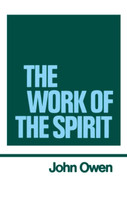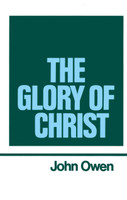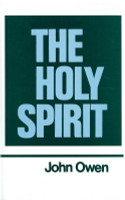
The Works of John Owen, Vol. 13: Ministry and Fellowship
- Affordable shipping (free $100+)
- 100,000+ customers served
- "Wonderful books, great prices, awesome customer service." – Ivan, IL
Despite his other achievements, Owen is best famed for his writings. These cover the range of doctrinal, ecclesiastical and practical subjects. They are characterized by profundity, thoroughness and, consequently, authority. Andrew Thomson said that Owen 'makes you feel when he has reached the end of his subject, that he has also exhausted it.'
Although many of his works were called forth by the particular needs of his own day they all have a uniform quality of timelessness. Owen's works were republished in full in the nineteenth century. Owen is surely the Prince of the Puritans. 'To master his works', says Spurgeon, 'is to be a profound theologian.'
Table of Contents:
| THE DUTY OF PASTORS AND PEOPLE DISTINGUISHED, |
||
| PREFATORY NOTE BY THE EDITOR, | 2 | |
| Epistle Dedicatory, | 3 | |
| Preface, | 5 | |
| I | Of the administration of holy things among the patriarchs before the law, | 7 |
| II | Of the same among the Jews, and of the duty of that people distinct from their church officers, | 10 |
| III | Containing a digression concerning the name of “priests,” the right of Christians thereunto by their interest in the priesthood of Christ, with the presumption of any particularly appropriating it to themselves, |
19 |
| IV | Of the duty of God’s people in cases extraordinary concerning his wor- ship, |
28 |
| V | Of the several ways of extraordinary calling to the teaching of others- The first way, |
29 |
| VI | What assurance men extraordinarily called can give to others that they are so called in the former way, |
31 |
| VII | The second way whereby a man may be called extraordinarily, | 35 |
| VIII | Of the liberty and duty of gifted uncalled Christians in the exercise of divers acts of God’s worship, | 39 |
| ESHCOL; | ||
| A CLUSTER OF THE FRUIT OF CANAAN, | ||
| PREFATORY NOTE BY THE EDITOR, | 52 | |
| To the Reader, | 53 | |
| Rules of walking in fellowship, with reference to the pastor or minister that watcheth for our souls, |
55 | |
| Rules to be observed by those who walk in fellowship, and considered, to stir up their remembrance in things of mutual duty one towards an- other, |
62 | |
| OF SCHISM, | ||
| PREFATORY NOTE BY THE EDITOR, | 90 | |
| I | Aggravations of the evil of schism, from the authority of the ancients… | 91 |
| II | The nature of schism to be determined from Scripture only… | 99 |
| III | Objections against the former discourse proposed to consideration… | 120 |
| IV | Several acceptations in the Scripture of the name “church”… | 124 |
| V | Of the catholic church visible-Of the nature thereof-In what sense the universality of professors is called a church… | 136 |
| VI | Romanists’ charge of schism on the account of separation from the church catholic proposed to consideration,… | 153 |
| VII | Of a particular church; its nature… | 173 |
| VIII | Of the church of England-The charge of schism in the name thereof proposed and considered… | 181 |
| A REVIEW OF THE TRUE NATURE OF | ||
| PREFATORY NOTE BY THE EDITOR, | 208 | |
| To the Reader, | 209 | |
| I | [General character of Mr Cawdrey’s book], | 211 |
| II | An answer to the appendix of Mr Cawdrey’s charge, | 222 |
| III | A review of the charger’s preface, | 227 |
| IV | Of the nature of schism, | 229 |
| V | [On the objections to Owen’s views of the nature of schism], | 239 |
| VI | [On schism in reference to the catholic invisible church], | 244 |
| VII | [On schism in reference to the catholic church visible], | 247 |
| VIII | Of Independentism and Donatism, | 253 |
| IX | [On schism in reference to a particular church], | 257 |
| X | Independency no schism, | 264 |
| AN ANSWER TO A LATE TREATISE ABOUT THE NATURE OF SCHISM. | ||
| PREFATORY NOTE BY THE EDITOR, | 278 | |
| An Answer, etc., | 279 | |
| A BRIEF VINDICATION OF THE NONCONFORMISTS FROM THE CHARGE OF SCHISM. | ||
| PREFATORY NOTE BY THE EDITOR, | 304 | |
| A Brief Vindication, etc., | 305 | |
| TRUTH AND INNOCENCE VINDICATED. | ||
| PREFATORY NOTE BY THE EDITOR, | 344 | |
| Review of the Preface, | 345 | |
| A SURVEY OF THE FIRST CHAPTER. | ||
| I | [Inconsistent expressions of Parker in regard to the power of the magistrate and the rights of conscience-The design of his discourse to prove the magistrate’s authority to govern the consciences of his subjects in affairs of religion-This doctrine inconsistent with British law-Ascribes more power to the magistrate than to Christ-Contrary to the history of the royal prerogative- Alleged necessity of the principle to public peace and order-Evils alleged to spring from liberty of conscience-The principle of Parker no real preventive to these evils-Various pleas refuted], | 369 |
| A SURVEY OF THE SECOND CHAPTER. | ||
| II | [Alleged power of the magistrate over the conscience in matters of morality refuted-Distinction between moral virtue and grace-Meaning of the terms-Four propositions of Parker on grace and virtue considered -Agreement between the views of Parker and those of the Socinian Seidelius-Exceptions taken to these views-Power of the magistrate in reference to moral duties-The true ground of obligation to these duties], | 409 |
| A SURVEY OF THE THIRD CHAPTER. | ||
| III | [Liberty of conscience-The obligation to comply with its dictates not superseded by the authority of the magistrate-External worship an essential part of religion-External worship not left to be regulated by man-The right of sacrifice shown to be of divine original-Alleged right of the magistrate to appoint ceremonies-Distinction between words and ceremonies as signs], | 439 |
| A SURVEY OF THE FOURTH CHAPTER. | ||
| IV | [Conscience exempted from human authority, where there is an antecedent obligation from divine authority], | 453 |
| A SURVEY OF THE FIFTH CHAPTER. | ||
| V | [Alleged evils from the free exercise of conscience-Charges of Parker against Nonconformists-Mischief of different sects in a commonwealth -Duties of a prince in regard to divided interests in religion-Principle of toleration asserted], | 454 |
| A SURVEY OF THE SIXTH CHAPTER. | ||
| VI | [The word of God the sole rule of worship-The light of reason- Vocal revelation-Magistrate’s power in regard to things without the church but about it-Testimonies from the ancient fathers as to the supreme authority of Scripture-Alleged instances from the Old Testament of the magistrate appointing religious rites-Parker’s answers to certain objections considered-Doctrine of passive obedience refuted-Alleged right of the magistrate to punish his subjects if they will not comply with idolatry or superstition established by law-The true dignity and functions of the magistrate declared -Exhortation to toleration and charity], | 462 |
| TWO QUESTIONS CONCERNING THE POWER OF THE SUPREME MAGISTRATE, ETC. | ||
| PREFATORY NOTE BY THE EDITOR, | 508 | |
| Question First, | 509 | |
| Question Second, | 514 | |
| Question Third, | 514 | |
| INDULGENCE AND TOLERATION CONSIDERED. | ||
| PREFATORY NOTE BY THE EDITOR, | 518 | |
| Indulgence and Toleration Considered, | 519 |





